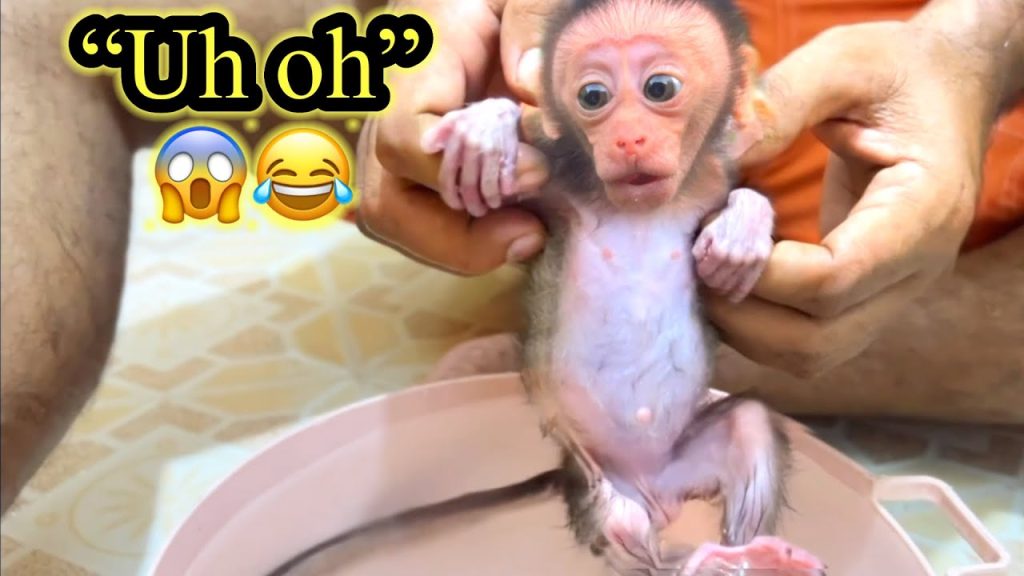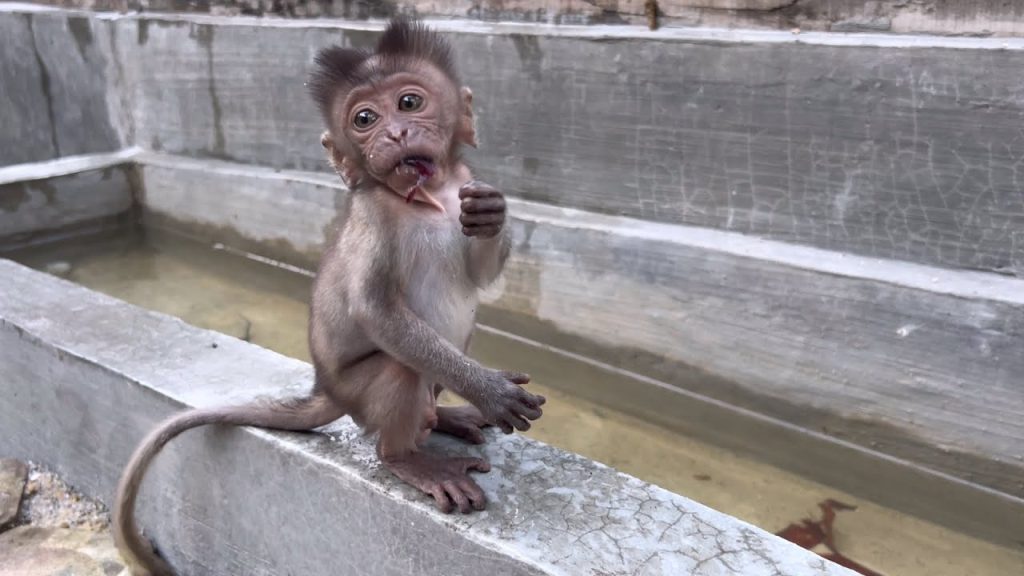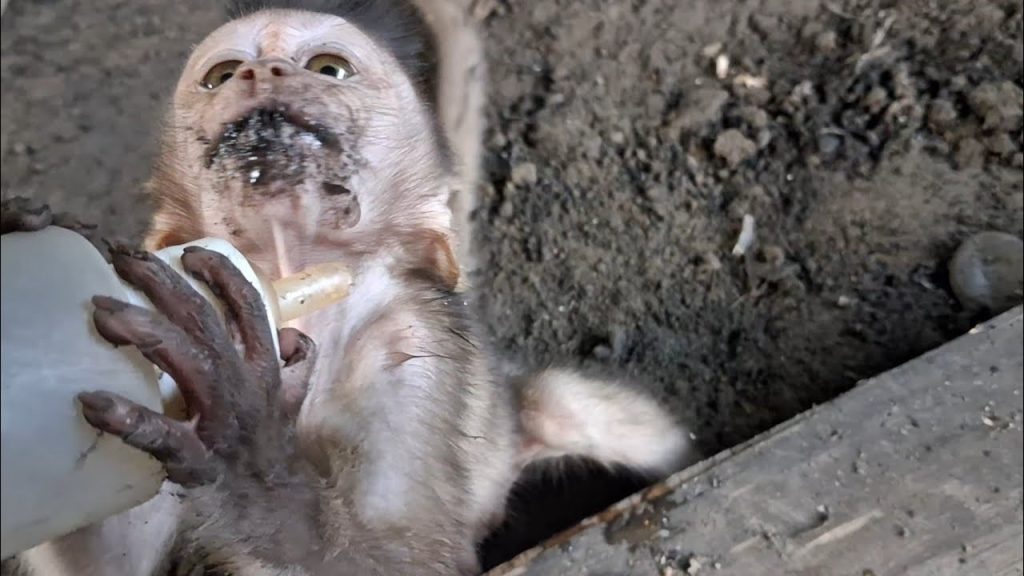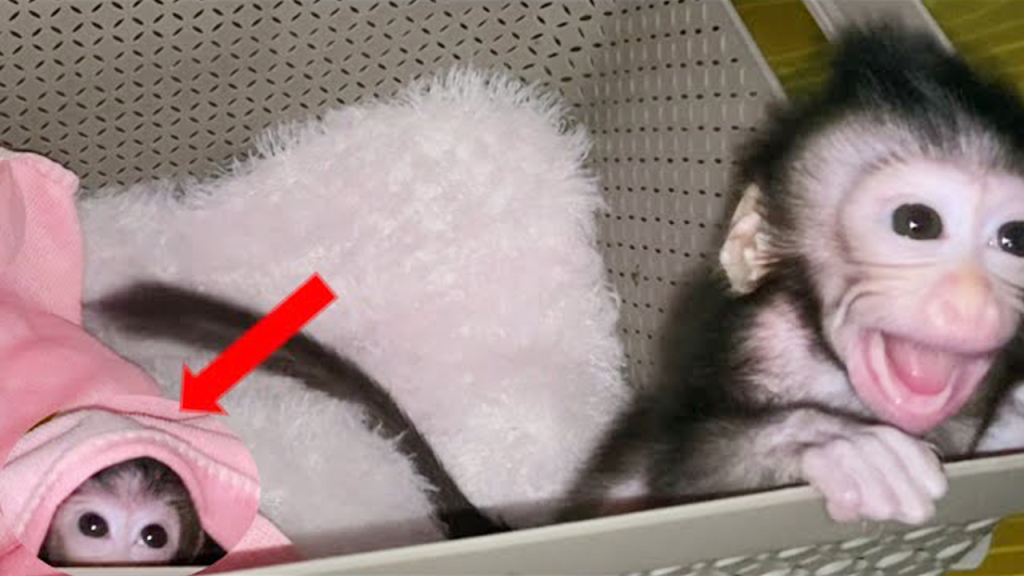
Baby monkey Mimi never expected her ordinary bath time to suddenly transform into a storm of emotion, tension, splashing panic, and full-body confusion. Bath time in human imagination looks cute — tiny bubbles, gentle water, soft towel afterwards — but for a very young primate, especially one without stable sensory confidence, water can instantly convert from curiosity into danger. Mimi’s reaction — the wide eyes, the frozen chest, then the sudden flailing scramble — shows clearly that her nervous system was not ready for the transition between dry security and slippery unpredictability. Small monkeys do not yet have the internal framework to understand “this water is safe.” Their brains interpret sudden temperature change, shifting surface, and loss of footing as threat. So when Mimi realized the bath was not simply gentle touching but full wet involvement, the fear snapped open.
Even the texture of water matters. Water has no “edges.” It cannot be grabbed, held, or bitten. For a creature whose psychological comfort is built on clinging — to mama fur, to hands, to fabric — this makes the bath feel like falling without gravity. She tries to hold something but the water slides away. Her instinct says she must escape. So she splashes, kicks, screams, and tries to anchor herself on anything solid — edge of basin, human wrist, towel corner, even her own tail. The chaos is not misbehavior. It is biological panic.
This is why proper bathing of young monkeys must be a step-by-step introduction instead of a sudden immersion. The caregiver should always begin with very small exposure: a damp cloth on the belly, then slowly wetting hands, then introducing warm shallow water only deep enough to feel gentle, never more. Every successful second of calm behaviour must be rewarded — soft voice, gentle rub, stable rhythm like heartbeat massage along the spine. This creates new association: water equals safety, water equals comfort, water equals affection.
After the bath, the towel phase is equally critical. Wrapping Mimi warmly, against chest, with slow breathing from caregiver, allows her to recover from the shock and store the entire experience as a complete cycle — fear, then safety. Next time, the fear memory weakens.
So the dramatic surprise — Mimi in chaotic panic — can actually become the seed of a future stable bathing routine. Emotional trauma is avoided not by force, but by gently teaching her that even scary sensations can end in warmth, care, and calm connection.


